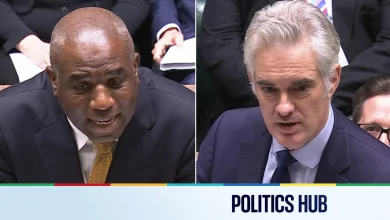This is Home: Khosru Miah, former heroin addict and Peer Mentor from Bow

After grooming led him to more than 20 years in active addiction, Bow local Khosru Miah has returned from a dark world.
As we walk down Roman Road, a man stops Khosru Miah to shake his hand. Last week, Miah got him medical help after he collapsed at their gym. Miah is charmingly bashful and gives him a fist bump and a grin. He is used to being there for people – he’s a father to a two-year-old girl, a husband and a peer support mentor.
Moments earlier, Miah was telling me a very different story, about a man who used to be known across the borough for shoplifting, chaotic drug use and petty theft, a man who many people believed was heading for unavoidable death. Miah is describing himself during the 20 years he spent as a heroin addict.
‘I was so ill, I was so hungry, I was so near to death. I was suffering from trauma, anxiety, and sometimes I was ODing and stuff like that,’ Miah said.
After getting addicted to heroin at the age of 16, Miah’s habit was once so extreme that he needed it every couple of hours. Today, the leaf he has turned over is so new, it might as well be a different tree altogether.
‘People who knew me from back then. Sometimes they do a U-turn when they see me they’re like, bloody hell, how did you turn it around? I thought you were a goner.‘
But how did Miah journey so far into darkness in the first place, and what kind of light led the way out?
Miah was the first child of seven in a big, first-generation Bengali family. They were poor and lived in a Council estate in Bow. His father was a tailor, a traditional trade for first-generation Bengalis, and worked from morning to night. Today, the whirr and clacking noise of sewing machines throws Miah into intense nostalgia. Miah was clothed and fed by his parents, but providing for their children was all-consuming.
‘I think there was something missing in me from a young age, right, meaning like, I wasn’t getting it at home,’ Miah said.
Pretty soon, a lonely 14-year-old Miah was taken under the wing of some older boys, who would ask him for simple favours – for example, to deliver a bag of food to someone’s door. Afterwards, Miah would be given sweets or small bits of cash, and more importantly, affection.
‘What we know now, what was happening to me actually, I was being groomed to actually do some of their bidding, right? So I found myself involved in drugs from a very young age,’ Miah explained. Miah had a slight stature and a baby face; he looked much younger than he actually was.
Slowly, he began to gain awareness that he was being used to sell drugs and see more of the dark reality.
‘I started seeing girls abused by men,’ Miah said, ‘I don’t know what to do, and I’m just like […] s***ing myself. And then I’ve seen like a lot of bad stuff, people dying.’
At age 16, Miah tried heroin to see what the buzz was about. ‘I’ve got this euphoria in my body, and for some reason I didn’t have no more problems. You know what mean? And I liked that feeling.’
Very quickly, Miah was smoking heroin every day. He spent his days trapped in a confusing mental state, either high or fighting painful withdrawal. ‘It led to a life of torture. It led to a life of hospitals, prison cells, arguments […] shunned by the community. Worthless, you know what I mean.’
At first, his baby face was useful on the street. Working women in the area didn’t see him as a threat, so they took him under their wing, and he’d watch their things while they went on jobs and share some drugs with him after.
To support his habit, Miah mostly stole. ‘I always got caught, you know, all the security knew me, the police knew me, for the wrong reasons.’ His habit got hungrier, meaning he needed to come up with around £200 every day to sustain it.
It led to a life of torture. It led to a life of hospitals, prison cells, arguments […] shunned by the community. Worthless, you know what I mean.
KHOSRU MIAH, PEER MENTOR AT THE PEOPLE’S RERCOVERY PROJECT
Quickly, he wasn’t able to stay home around his younger siblings, and became homeless, rough sleeping around Brick Lane, or in Whitechapel’s notorious Booth House shelter, which he described as ‘death’s door.’
A few times, he went on residential treatments, once in Bangladesh and a few times in London. But as soon as he was back in the neighbourhood, his old habits would come back too.
It wasn’t Miah’s 30s when he met Ed Addison, founder of the People’s Recovery Project, that things began to change. At the time, Addison hadn’t set up his organisation yet. But he still reached out to Miah with the hallmark that defines the organisation today – patience.
Addison’s goal was to help Miah recover, but he didn’t stop reaching out when Miah would relapse or when he wasn’t getting through straight away. It sounds simple, but overstretched addiction support services don’t always follow up with ‘lost causes,’ like Miah would’ve been seen as.
‘Someone having a bit of belief in me made me realise that, you know what, […] Maybe I can start doing something different,’ Miah said. Today, the People’s Recovery project also advocates to make it easier for homeless people to get into residential detox programmes, which is what eventually gave Miah a chance to get clean.
Tower Hamlets has the highest number of people in treatment for opioid use across London, an estimated 1190. Yet treatment services are overstretched and under-funded, and it’s grassroots groups like the People’s Recovery Project which fill in the gaps.
Ironically, the People’s Recovery Project does not even get funding from Tower Hamlets Council. They technically work in Hackney, but addiction in the East End doesn’t follow borough boundary lines.
After five tough years in recovery, Miah got his first real job – as a sous chef at Wagamama’s. Having work and a stable routine for the first time was great, but he felt like he’d left a part of himself behind
‘I wasn’t getting the fulfilment that I think I was destined to be getting, you know, deep inside. And I didn’t want 20 plus years of my using and recovery to go to waste.’
At this point, Addison, whom Miah had lost touch with, came back into the picture. He had just set up the People’s Recovery Project. Miah began working with him as a Peer Mentor and left his job at Wagamama’s.
Today, he does the same work that saved his life – reaching out to homeless people struggling with addiction and meeting them wherever they are. Because of his experience, connecting with people is easier.
‘A lot of people are tired because no one shows them compassion,’ Miah said. ‘I know how it feels, when you’re waking up sick and it’s raining and everyone and their dog is telling you to move along.’
At the level of addiction Miah experienced, he was on the brink of death many times. He was preyed on from a very young age. Not many people manage to escape that kind of darkness. Partly, this is because people don’t believe that they can.
The rough sleepers in our borough are part of our community, each with their own personal stories and families, but they often aren’t treated that way. As a Peer Mentor at the People’s Recovery Project, today Miah’s job is to right that wrong.
If you liked this, read England’s first drug overdose prevention site could be hosted in Tower Hamlets





